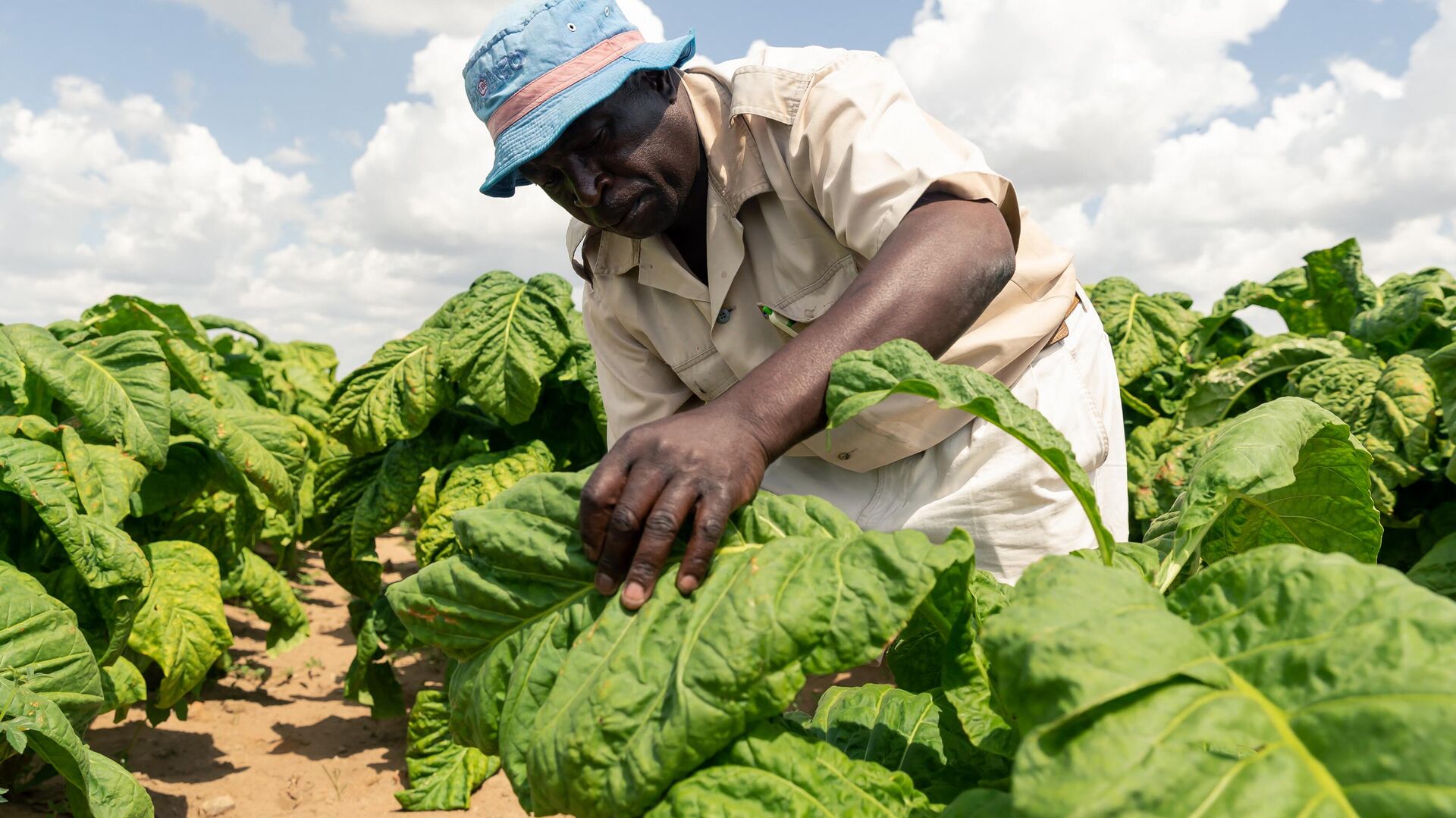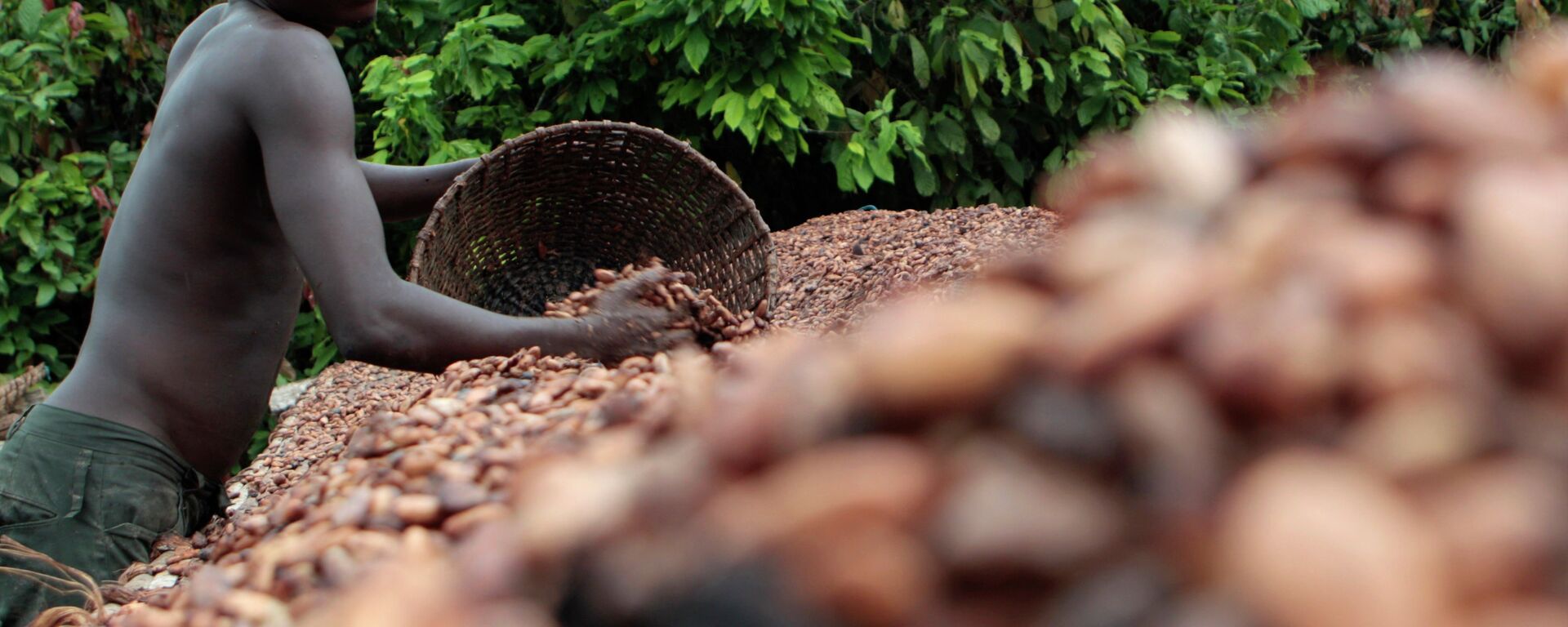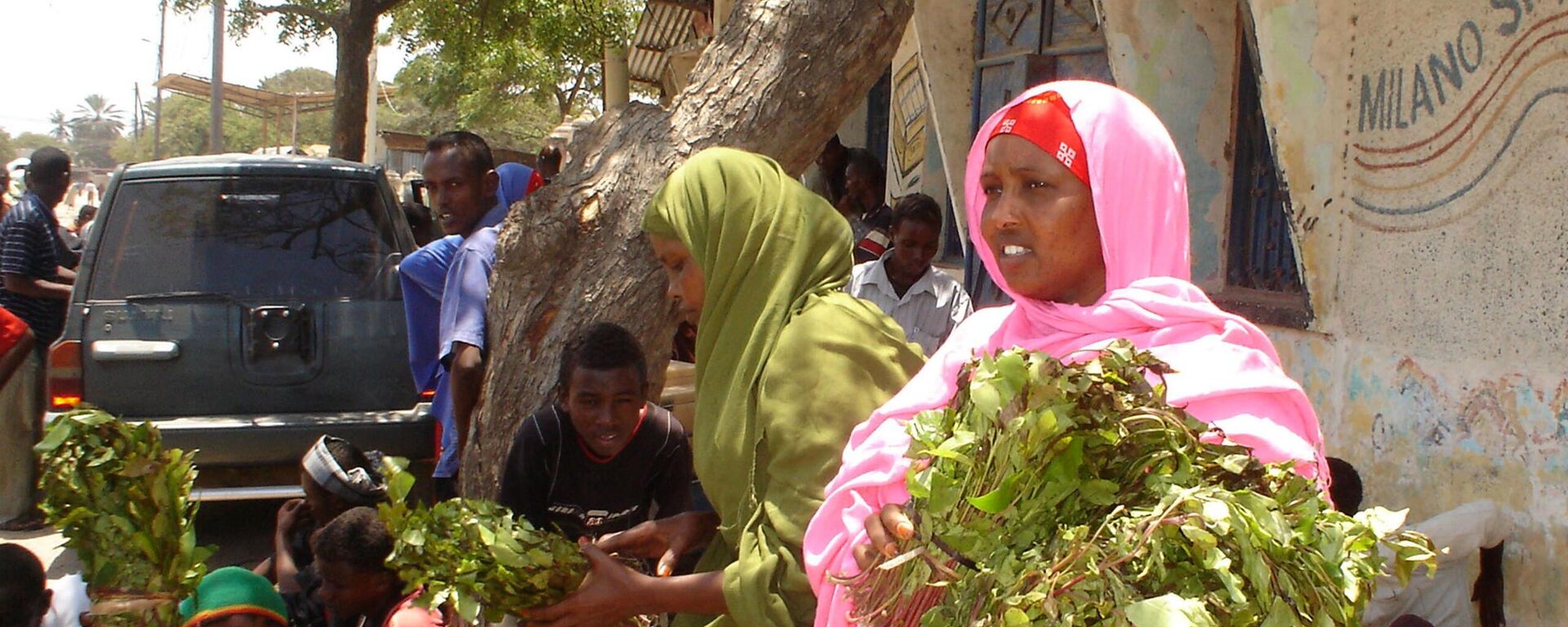https://en.sputniknews.africa/20230527/who-backs-farmers-to-grow-food-instead-of-tobacco-1059513220.html
WHO Backs Farmers to Grow Food Instead of Tobacco
WHO Backs Farmers to Grow Food Instead of Tobacco
Sputnik Africa
The World Health Organization (WHO) said Friday it was helping a growing number of farmers turn away from tobacco to help strengthen food security, particularly on the African continent.
2023-05-27T13:04+0200
2023-05-27T13:04+0200
2023-05-27T13:04+0200
sub-saharan africa
world health organization (who)
world food programme (wfp)
food security
farmers
https://cdn1.img.sputniknews.africa/img/07e7/05/1b/1059513456_0:313:3072:2040_1920x0_80_0_0_94a6626e4745ee3c9887a03596e176fc.jpg
Ahead of World No Tobacco Day on Wednesday, the WHO said it had teamed up with other United Nations agencies to support farmers wishing to convert from growing tobacco to growing food.The scheme's pilot in Kenya has proved successful, and now the UN wants to export it to other countries and continents.Beyond its effects on the health of smokers and farmers, tobacco growing poses a problem for food security, according to the WHO.The UN health agency is concerned that tobacco companies are gaining an increasing foothold in Africa, with a rise of nearly 20 percent in tobacco plantations across the continent since 2005.He said it only accounts for more than one percent of gross domestic product in five countries: Malawi, Mozambique, Zimbabwe, Tanzania and North Macedonia. He added, "So the profits go to the global tobacco companies."The WHO accuses the tobacco industry of trapping farmers in a "cycle of dependency", giving them little control over product prices and quality.Three UN agencies – the WHO, the Food and Agriculture Organization and the World Food Programme (WFP) – have set up a credit program to help farmers pay off their debts to the tobacco industry and switch crops.The scheme was launched in Migori county in southwest Kenya, where 2,040 farmers have been helped in the first year.Krech said the concept proved itself in the first year, and he hopes to have about 5,000 farmers on board – 4,000 in Kenya and 1,000 in Zambia – by the end of next season.WHO chief Tedros Adhanom Ghebreyesus said in a statement: "Tobacco is responsible for eight million deaths a year, yet governments across the world spend millions supporting tobacco farms. By choosing to grow food instead of tobacco, we prioritize health, preserve ecosystems, and strengthen food security for all."
https://en.sputniknews.africa/20230512/chocolate-giants-fail-to-pay-ghana-farmers-says-charity-1059195603.html
https://en.sputniknews.africa/20230506/ugandan-court-lifts-narcotics-ban-legalizing-khat-farmers-business-1059086476.html
Sputnik Africa
feedback@sputniknews.com
+74956456601
MIA „Rossiya Segodnya“
2023
Agence France Presse (AFP)
Agence France Presse (AFP)
News
en_EN
Sputnik Africa
feedback@sputniknews.com
+74956456601
MIA „Rossiya Segodnya“
Sputnik Africa
feedback@sputniknews.com
+74956456601
MIA „Rossiya Segodnya“
Agence France Presse (AFP)
who, wfp, un, tobacco, tobacco farms, tobacco farmers, tobacco in africa, food production, food security, tobacco production, tobacco plant, kenya, zambia, zimbabwe, uganda
who, wfp, un, tobacco, tobacco farms, tobacco farmers, tobacco in africa, food production, food security, tobacco production, tobacco plant, kenya, zambia, zimbabwe, uganda
WHO Backs Farmers to Grow Food Instead of Tobacco
Agence France Presse (AFP)
The World Health Organization (WHO) said Friday it was helping a growing number of farmers turn away from tobacco to help strengthen food security, particularly on the African continent.
Ahead of World No Tobacco Day on Wednesday, the WHO said it had teamed up with other United Nations agencies to support farmers wishing to convert from growing tobacco to growing food.
The scheme's pilot in Kenya has
proved successful, and now the UN wants to export it to other countries and continents.
"A record of 349 million people face acute food insecurity and that is up from 135 million in 2019," Ruediger Krech, the WHO's director for health promotion, told reporters in Geneva. "Then we have 124 countries which grow tobacco as a cash crop, covering an estimated 3.2 million hectares of land. Approximately 200,000 hectares of land are cleared every year for tobacco crop growing."
Beyond its effects on the health of smokers and farmers, tobacco growing poses a problem for food security, according to the WHO.
The UN health agency is concerned that tobacco companies are gaining an increasing foothold in Africa, with a rise of nearly 20 percent in tobacco plantations across the continent since 2005.
"It is often said that tobacco farming would be so important for economic growth. This is a myth that we urgently need to dispel," said Krech.
He said it only accounts for more than one percent of gross domestic product in five countries: Malawi, Mozambique, Zimbabwe, Tanzania and North Macedonia. He added, "So the profits go to the global tobacco companies."
The WHO accuses the tobacco industry of trapping farmers in a "cycle of dependency", giving them little control over product prices and quality.
"They're trapped. They need to repay the debt before they can discontinue the work for big tobacco," said Krech.
Three UN agencies – the WHO, the Food and Agriculture Organization and the World Food Programme (WFP) – have set up a credit program to help farmers pay off their debts to the tobacco industry and switch crops.
The scheme was launched in Migori county in southwest Kenya, where 2,040 farmers have been
helped in the first year.
"We were really positively surprised to see so much interest," said Krech, adding, "But they saw that this is a viable alternative", making triple the profits. "They have already shifted to growing high iron beans. This moving away from growing also meant that children can go to school instead of growing tobacco. Mind you, 1.3 million children are working in tobacco fields."
Krech said the concept proved itself in the first year, and he hopes to have about 5,000 farmers on board – 4,000 in Kenya and 1,000 in Zambia – by the end of next season.
"From there, we will move to other countries in Asia and South America, because that's where the big tobacco growth still takes place," he said.
WHO chief Tedros Adhanom Ghebreyesus said in a statement: "Tobacco is responsible for eight million deaths a year, yet governments across the world spend millions supporting tobacco farms. By choosing to grow food instead of tobacco, we prioritize health, preserve ecosystems, and strengthen food security for all."



